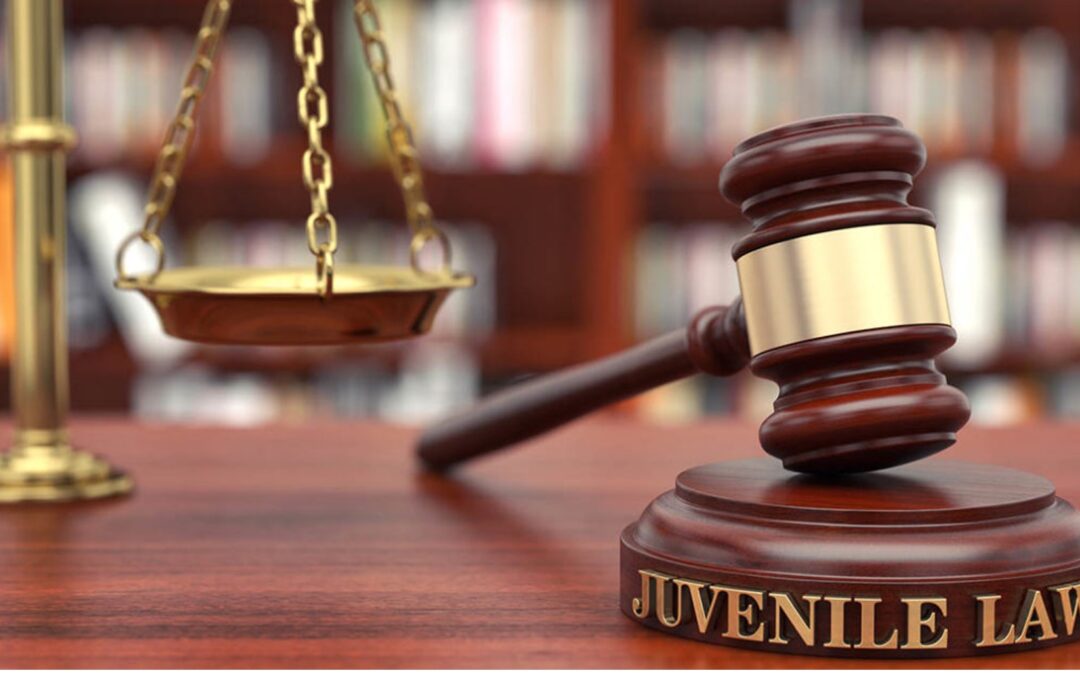
by Crystal Barranco Garcia | Feb 14, 2022 | Moot Court Mondays
 On February 3, 2022 the Supreme Court of Florida approved proposed amendments to the Florida Rules of Juvenile Procedure; and it seems more change is coming from the legislature. The new trend is showing a broadening of rights and protections for juveniles. Among the rules that were amended and/or added are, 8.217, 8.305, and 8.345. Although there were many important changes approved these are some of the most important ones. First, rule 8.217 now adds the words “attorney for the child” when the caregiver has objected to “a change in the child’s physical custody placement.”2 This differs from the previous rule which only required the child have attorney ad litem.3 Another amended rule is 8.305 which now prioritizes “out-of-home placements, including fictive kin, or nonrelatives.” Lastly, rule 8.345 which focuses on Post-Disposition Relief has been amended so that it now provides that “a hearing must be held if any party or the current caregiver denies the need for a change [to custody placement] and creates a rebuttable presumption that it is in the child’s best interest to remain permanently in the current physical placement if certain conditions are present.”
On February 3, 2022 the Supreme Court of Florida approved proposed amendments to the Florida Rules of Juvenile Procedure; and it seems more change is coming from the legislature. The new trend is showing a broadening of rights and protections for juveniles. Among the rules that were amended and/or added are, 8.217, 8.305, and 8.345. Although there were many important changes approved these are some of the most important ones. First, rule 8.217 now adds the words “attorney for the child” when the caregiver has objected to “a change in the child’s physical custody placement.”2 This differs from the previous rule which only required the child have attorney ad litem.3 Another amended rule is 8.305 which now prioritizes “out-of-home placements, including fictive kin, or nonrelatives.” Lastly, rule 8.345 which focuses on Post-Disposition Relief has been amended so that it now provides that “a hearing must be held if any party or the current caregiver denies the need for a change [to custody placement] and creates a rebuttable presumption that it is in the child’s best interest to remain permanently in the current physical placement if certain conditions are present.”
It seems that these newly proposed amendments are just some in the new era of juvenile procedural change. The Florida Senate approved this same week a juvenile expungement bill. This bill would “broaden a juvenile’s ability to expunge their arrest record in Florida.”4 This would favor the juvenile clients that want to continue a life free of the bitter reminder of their conviction. Now more than ever Florida attorneys need to keep a close eye to the changes coming to juvenile law. Time to shepardize the law.
Sources:
1 https://www.jmcdowelllaw.com/juvenile-law-common-misconceptions/
2 https://www.floridasupremecourt.org/content/download/826484/opinion/sC21-1681.pdf
3 An attorney ad litem is a court-appointed lawyer who represents a child during the course of a legal action, such as a divorce, termination, or child-abuse case. The attorney owes to the child the duties of loyalty, confidentiality, and competent representation. https://www.law.cornell.edu/wex/ad_litem
4 https://floridapolitics.com/archives/495260-juvenile-expunction-bill-advances-through-final-senate-committee-stop/

by Elise Nuevo | Nov 8, 2021 | Moot Court Mondays

Elise Nuevo
New business is a key factor to any attorney’s success—and finding unique ways to reach potential new clients is essential. When it comes to advertising, however, attorneys must follow the rules provided by the Florida Bar. Specifically, Rule 4-7.19.
New and transformative digital technologies are rapidly taking over and enabling organizations to innovate and thrive in a progressively digital world. COVID-19 put a full-stop on business as usual and created a launching pad for organizations to become virtual—all while doing it at lightning-fast speed. The Florida Bar is keeping up-to-date and advancing to fit in with this technology that is becoming more integrated with every aspect of our lives each day.
The Florida Supreme Court has just adopted amendments to rule 4-7.19 to allow the Florida Bar to post on the Bar website the location for submission of advertisements for review. Advertisements must be filed with The Florida Bar in the manner that is specified on the Florida Bar website. What does this mean? The adopted amendment will now potentially allow the Bar to implement procedures for online submission of advertisements.
An electronic submission system may be more efficient and effective in comparison to the traditional mailing processes that have been set in stone for years. Advertisements by lawyers are at an all-time high. These rapid developments are not only providing innovative solutions that attorneys need to improve their workflow but are also providing them with a much faster way to submit their advertisements that will, in return, help their businesses—with just the click of a finger.
Sources:
Florida Supreme Court Case: IN RE: AMENDMENTS TO RULE REGULATING the FLORIDA BAR 4-7.19
The Florida Bar News: BAR REVIEWING MORE LAWYER ADS

by Alexa Zamora | Nov 1, 2021 | Moot Court Mondays

Alexa Zamora
The Florida Bar’s Special Committee on Examination of Judicial Referral Process was assigned to create the most effective and efficient process to address judicial referrals of lawyer misconduct.
Rule 3-7.18 of the Rules Regulating the Florida Bar was amended to address judge’s long history of dissatisfaction of never being informed of the outcome of their complaint or inquiry to the Florida Bar regarding lawyer misconduct. When a judicial complaint is made, many times, the Florida Bar Committees’ decision does not require the filing of formal grievance charges. The Committees’ decision not to pursue an inquiry, dismiss a case, find no probable cause, issue a letter of advice, recommend a diversion, or recommend an admonishment for minor misconduct are all dispositions that do not require a filing of formal charges. Consequently, judges are not being informed of the Florida Bar Committees’ decision nor informed of the outcome of their complaint.
Rule 3-7.18 creates a process of review and approval by the Board of Governors of the Florida Bar and the Court regarding all dispositions of judicial referrals. First, the Bar’s Disciplinary Review Committee will review all inquiries or complaints that do not require filing formal charges and recommend a disposition to the full Board of Governors. Thereafter, the Board of Governors have one of two options, either they accept the committee’s recommended disposition or reject it. Suppose the board decides to reject the recommended disposition. In that case, the Board of Governors either can refer the matter to a grievance committee for additional investigation or review; find probable cause, and the case would proceed accordingly; or recommend a different disposition to the Supreme Court of Florida.
The Florida Supreme Court may review the board’s recommendation for approval of dispositions of judicial referrals and may take one of the following actions, either approve the board’s recommended disposition; reject the Board’s recommendation, refer the matter back to the Board for further review, or request that the bar provide additional information.
The new rule will become effective on December 20, 2021.
Sources:

by Claudia Martinez | Oct 25, 2021 | Moot Court Mondays

Claudia Martinez
The State of Florida is well-known for its Stand Your Ground law. The essence of the Florida law is recited throughout the country as the controversy on the topic continues to grow. The procedural limitations of Florida’s Stand Your Ground law, however, are not as popular. In a recent opinion, the Florida Supreme Court addressed what happens when the wrong burden of proof is used during an immunity hearing consisting of a Stand Your Ground defense.
In 2017 the Florida Legislature amended Florida Statute Section 776.032, which took effect on June 9, 2017, to include the necessary burden of proof of clear and convincing evidence. This was in direct response to a previous holding from the Florida Supreme Court in 2015, asserting that “[a] defendant bears the burden of proof, by a preponderance of the evidence, to demonstrate entitlement to Stand Your Ground immunity at [a] pretrial evidentiary hearing.” Bretherick v. State, 170 So. 3d 766, 775 (Fla. 2015).
A retroactive application of this new burden of proof had not been adjudicated until recently. In Boston v. State, 296 So. 3d 580 (Fla. 1st DCA 2020), a defendant was charged with aggravated battery with a deadly weapon from an altercation taking place in 2016, which was before the legislative amendment went into effect. The defendant claimed immunity under the Stand Your Ground law. The trial court ultimately decided that the pre-amendment standard of a preponderance of the evidence should be applied, since the altercation had taken place in 2016. The defendant was subsequently found guilty of a lesser-included offense, after both his immunity hearing and his self-defense claim failed.
On appeal, the issue before the Court was whether this retroactive application of the pre-amendment standard of proof had affected the outcome of the defendant’s case. In reaching its conclusion, the Florida Supreme Court placed special emphasis on the hierarchy of the standards of proof. Proof beyond a reasonable doubt is the highest and most burdensome standard to meet. Once the State has met this burden, it seems reasonable to conclude that a lower standard – such as a preponderance of the evidence or clear and convincing evidence – has been satisfied. A retroactive application of the preponderance of the evidence standard is therefore a harmless error bearing no significant change in the outcome of the case.
CITES

by Ray Rascon | Oct 18, 2021 | Moot Court Mondays

Ray Rascon
Recently on October 4, 2021, the Florida Supreme Court heard oral arguments on appeal in the case of Mark Sievers. Sievers was convicted in December 2019 of the brutal first-degree murder of his wife. A Lee County jury recommended the death sentence for Sievers, and Judge Bruce E. Kyle sentenced him to death in January 2020. Attorneys for Sievers filed the appeal with the Florida Supreme Court in February 2020.
Among the eighteen issues argued on appeal, was the issue of the prosecution’s timeliness in filing a notice to seek the death penalty. Justice Couriel and Justice Muñiz spent a significant amount of time questioning each counsel about the central issue of timeliness. Kary Kinney represented Sievers and on behalf of the State of Florida was assistant attorney general Christina Pacheco.
If a prosecutor in a capital offense case intends on seeking the death penalty, Section 782.04(1)(b) of the Florida Statutes, and its counterpart in Rule 3.181 of the Florida Rules of Criminal Procedure, generally set forth a notice requirement. Specifically, Rule 3.181 states:
The prosecutor must give notice to the defendant of the state’s intent to seek the death penalty. The notice must be filed with the court within 45 days of arraignment. The notice must contain a list of the aggravating factors the state intends to prove and has reason to believe it can prove beyond a reasonable doubt. The court may allow the prosecutor to amend the notice upon a showing of good cause.
Fla. R. Crim. P. 3.181.
On the one hand, Rule 3.181 addresses the temporal period of when to file and when it is permissible to amend. On the other hand, Rule 3.050 addresses extensions of the temporal period, and states as follows:
The court for good cause shown may, at any time, in its discretion (1) with or without notice, order the period enlarged if a request, therefore, is made before the expiration of the period originally prescribed or extended by a previous order or (2) upon motion made and notice after the expiration of the specified period, permit the act to be done when the failure to act was the result of excusable neglect.
Fla. R. Crim. P. 3.050 (emphasis added).
In the Sievers case at hand, the trial court noted the date of arraignment to be May 9, 2016, although the defense argued the May 5th filing of the “waiver of arraignment” should have acted as the de facto arraignment date (the trial judge determined the pleading was not designed to trigger a waiver of arraignment). This effectively placed the prosecution’s June 22nd filing of a notice on the 44th day of the period and the prosecution’s subsequent amendment to include aggravating factors beyond the prescribed time period. The prosecution’s reason for the amendment was simply inadvertence.
The Florida Supreme Court will now have to decide whether a statement of inadvertency is sufficient for a showing of good cause under the present circumstances. The Court’s decision will certainly carry great precedential weight if the Court finds a harmless error in the five-day non-prejudicial delay in light of over three years leading up to the trial of the case. As Justice Couriel positioned the issue, “it sounds like you’re saying it was just tardily filed, oops, and the court then found good cause shown. I’m a little concerned about that as a basis for finding good cause shown.” Justice Muñiz echoed the concern, “so we would have to say that essentially ignorance of the new law is good cause.”
The central issue in the case highlights the importance of procedural compliance and begs the question: why do we set forth rules in the first place? The difference between life and death can come down to the form of a pleading, notice, or the timeliness of a request for extension, as may occur in this case. The stakes in this case juxtaposed to mere inadvertence are awfully high.
Sources:
- In re Amendments to Florida Rules of Criminal Procedure Rule 3.181
- In re Amendments to Florida Rules of Criminal Procedure Rule 3.050
- https://www.news-press.com/story/news/2021/10/05/mark-sievers-curtis-florida-supreme-court-asked-overturn-death-ruling/6003471001/

 On February 3, 2022 the Supreme Court of Florida approved proposed amendments to the Florida Rules of Juvenile Procedure; and it seems more change is coming from the legislature. The new trend is showing a broadening of rights and protections for juveniles. Among the rules that were amended and/or added are, 8.217, 8.305, and 8.345. Although there were many important changes approved these are some of the most important ones. First, rule 8.217 now adds the words “attorney for the child” when the caregiver has objected to “a change in the child’s physical custody placement.”2 This differs from the previous rule which only required the child have attorney ad litem.3 Another amended rule is 8.305 which now prioritizes “out-of-home placements, including fictive kin, or nonrelatives.” Lastly, rule 8.345 which focuses on Post-Disposition Relief has been amended so that it now provides that “a hearing must be held if any party or the current caregiver denies the need for a change [to custody placement] and creates a rebuttable presumption that it is in the child’s best interest to remain permanently in the current physical placement if certain conditions are present.”
On February 3, 2022 the Supreme Court of Florida approved proposed amendments to the Florida Rules of Juvenile Procedure; and it seems more change is coming from the legislature. The new trend is showing a broadening of rights and protections for juveniles. Among the rules that were amended and/or added are, 8.217, 8.305, and 8.345. Although there were many important changes approved these are some of the most important ones. First, rule 8.217 now adds the words “attorney for the child” when the caregiver has objected to “a change in the child’s physical custody placement.”2 This differs from the previous rule which only required the child have attorney ad litem.3 Another amended rule is 8.305 which now prioritizes “out-of-home placements, including fictive kin, or nonrelatives.” Lastly, rule 8.345 which focuses on Post-Disposition Relief has been amended so that it now provides that “a hearing must be held if any party or the current caregiver denies the need for a change [to custody placement] and creates a rebuttable presumption that it is in the child’s best interest to remain permanently in the current physical placement if certain conditions are present.”







